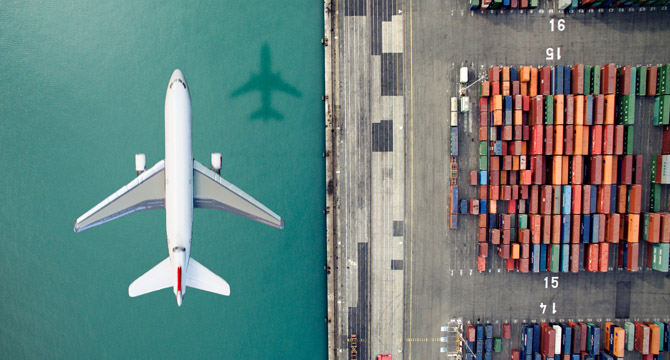
An open question coming into 2017 was whether the aggressive enforcement posture that had characterized the Obama and Bush administrations would continue under the Trump administration. Any questions were answered with the announcement of the first billion-dollar export controls penalty at the outset of the new administration. With the Trump administration continuing to aggressively pursue anti-money laundering, economic sanctions and Foreign Corrupt Practices Act antibribery enforcement actions, companies acting in the international realm, especially those within the automotive sector, are well-advised to take all available steps to ensure that their international regulatory compliance is in good shape.
Other regulatory developments, however, have underscored that the Trump administration raises unique compliance concerns. Ongoing efforts to renegotiate the North American Free Trade Agreement have emphasized the importance of customs compliance in a potentially new, higher-tariff environment. An aggressive international trade litigation environment under the new administration also underscores the importance of planning for potential business disruptions that can be caused by antidumping, countervailing duty, safeguard and other international trade remedies. And with the foreign policy objectives of the new administration (and Congress) at times sharply changing from the prior administration, maintaining a nimble trade posture with countries that potentially will see major changes to economic sanctions regulations are essential.
The U.S. government has continued under the new administration to push a strategy of aggressively enforcing U.S. laws governing extraterritorial conduct. These include the FCPA, economic sanctions largely administered by the Office of Foreign Assets Control and export controls on U.S.-origin goods. These laws underscore the premium that all multinational companies need to place on aggressively identifying and managing regulatory risk, particularly for their international operations.
These risks are especially prevalent in the automotive sector, which often attracts special enforcement and regulatory attention. In addition to the well-publicized antitrust enforcement actions that have targeted the industry, high-profile FCPA investigations involving prominent OEMs and the prior enactment (currently suspended) of special OFAC sanctions that target the automotive sector and any such operations in Iran underscore the risks that automotive suppliers incur when selling or operating overseas. Similar developments are evident in the domestic domain as well, where the growing frequency and intensity of antitrust, False Claims Act and government contract investigations present new challenges for manufacturers, suppliers and service providers of all kinds.
Many automotive companies—reading the headlines and not the actual changes in the law—have mistakenly concluded that the recent easing of sanctions with regard to Cuba and Iran mean that these countries are “open for business.” This is especially true with regard to their non-U.S. operations, which often have only a hazy understanding of how aggressive and creative the U.S. government is with regard to applying these laws abroad. The reality is, the primary sanctions remain in place for both countries (especially Iran), meaning that the risk of dealing with these countries remains high.
Further exacerbating the risks is the ongoing hostility of President Trump to several of the signature economic sanctions easings of the Obama administration. The administration is required to certify periodically that the Joint Comprehensive Plan of Action, which is the agreement by which the major world powers agreed to ease the very tight economic sanctions on Iran in return for Iran sharply cutting back on its nuclear enrichment activities.
Although President Trump has continued (on the advice of his advisors) to certify Iranian compliance with the JCPOA, he continues to state at regular intervals that the JCPOA is a “horrible” deal that should be overturned. President Trump also is no fan of the easing of the Cuban sanctions.
Many automotive companies have taken advantage of the JCPOA-related easing, particularly through use of “General License H,” which allows U.S. companies to establish separately incorporated subsidiaries to deal with Iran, provided that they divorce these separate legal entities from the United States and the U.S. financial system (no U.S. nationals involvement without a license, no use of the U.S. financial system, no facilitation by U.S. persons, and so forth). These legal, but still risky efforts need to be carefully monitored, not only to determine that the rules are followed, but also to ensure that there are no changes in the regulatory structure that would once again disallow such methods for engaging with the Iranian economy.
Greater Risk Awareness Leads to Greater Exports and International Compliance
U.S. laws governing exports and international conduct pose unique risks for the automotive sector. From the FCPA to ever-changing sanctions and export controls, companies involved in the automotive supply chain face an increasingly complex universe of requirements governing how and where they conduct business overseas. These regimes also shape business decisions at home, with the so-called “deemed export” rule compelling exclusively domestic companies to seek export licenses before disclosing controlled articles, data, software and technology to their non-U.S. employees. Combined with new disclosure requirements for listed companies and government contractors, the regulatory environment grows more complicated with each passing day.
Enforcement trends amplify these risks. In recent years, U.S. government agencies have targeted automotive and automotive supply chain companies under a number of different regulatory regimes. Notable examples include FCPA enforcement actions against AB Volvo, Daimler AG, Fiat, Iveco, Ingersoll-Rand, and Renault. Sanctions enforcement is also on the rise with Toyota Motor Credit Corporation and Volvo Construction Equipment North America, both targeted by OFAC. Automotive companies like GM-Daewoo have even faced government enforcement actions in relatively obscure areas like anti-boycott violations — a little-known legal regime that has both export and tax implications.
The importance of compliance also is underscored by the posture, reiterated by the new administration, that the Department of Justice will require that in investigations, companies identify individuals who participated in the conduct at issue. The goal is to bring an element of personal liability and responsibility into enforcement actions. Given that all of the laws that have major enforcement activity (FCPA, OFAC sanctions, export controls, antitrust and anti-money laundering) all have resulted in criminal convictions of individuals, this increased focus on identifying persons who participated in violations is a sobering reminder of the stakes that arise from poor compliance with these laws.
Many companies in the automotive sector have attributes that contribute to elevated risk. Chief among them are large global supply chains, downstream manufacturing by worldwide affiliates and frequent international trade in U.S.-origin goods, services and technologies. Multinational business practices also raise concerns, with sales, operations and joint ventures reaching into countries known for high levels of corruption, industrial espionage and illegal export diversion. With U.S. companies increasingly liable for the actions of their overseas agents and affiliates, a risk-based, integrated approach to international compliance offers the best means of identifying, managing and mitigating these risks.
Develop a Comprehensive Approach to International Compliance
Faced with these challenges, automotive companies should carefully consider how U.S. laws impact behavior both within and outside the U.S. This means identifying and addressing the risks that are likely to arise based on the nature of their business, the places where they conduct business and the customers they serve. It also means evaluating the degree to which foreign parties — whether subsidiaries, joint ventures or even contractors — engage in activities that expose their U.S. counterparts to civil and criminal liability. By taking a comprehensive approach, companies can best manage their risk and mitigate costs by conducting periodic risk assessments, crafting tailored internal controls, conducting frequent training and coordinating common standards across their entire organizations.
The same principles apply in the domestic compliance context. Suppliers need to understand their areas of risk and rigorously monitor and enforce their compliance policies, procedures and codes of conduct. Conducting periodic internal reviews, reviewing and updating written policies and procedures and updating and enhancing training programs are all components of a robust compliance program. Encouraging your employees to report any improper, unethical or illegal conduct is critical to uncovering any potential fraud within your organization. Clearly delineating responsibility for compliance with various policies and internal controls ensures accountability.
New Risks Arise in the Customs Arena
Many automotive companies have come to rely on the tariff-free movement of goods within the NAFTA region. Beyond the dollar and cents implications of the potential renegotiation of NAFTA, it should not be overlooked that the renegotiation of NAFTA will greatly upend the compliance implications.
Under the current regime, which allows many automotive-sector companies to export and import to and from Mexico and Canada without paying duties, it has become somewhat common for companies to pay less attention to the importance of customs compliance. But if the revised NAFTA raises tariff rates or changes regional content rules, missteps in classification, valuation or tracking regional content could be magnified. Even something as simple as not having NAFTA certificates of origin in hand at the time of importation already can lead to major bills from customs. A shifting NAFTA environment likely will multiple such opportunities for missteps.
These risks arise in an environment where customs enforcement risks already are rising. After years of focusing on security issues and the C-TPAT program following the 9/11 terrorist attacks, customs once again is re-emphasizing revenue collection goals. Even in a low-tariff environment, customs compliance missteps can be costly, particularly if they involve failure to recognize and declare anti-dumping and countervailing duties (where special tariffs can exceed 100 percent of the value of the goods in some cases). Major importers who fail to adapt to the new customs reality could be due for a major wake-up call from U.S. Customs and Border Protection.
